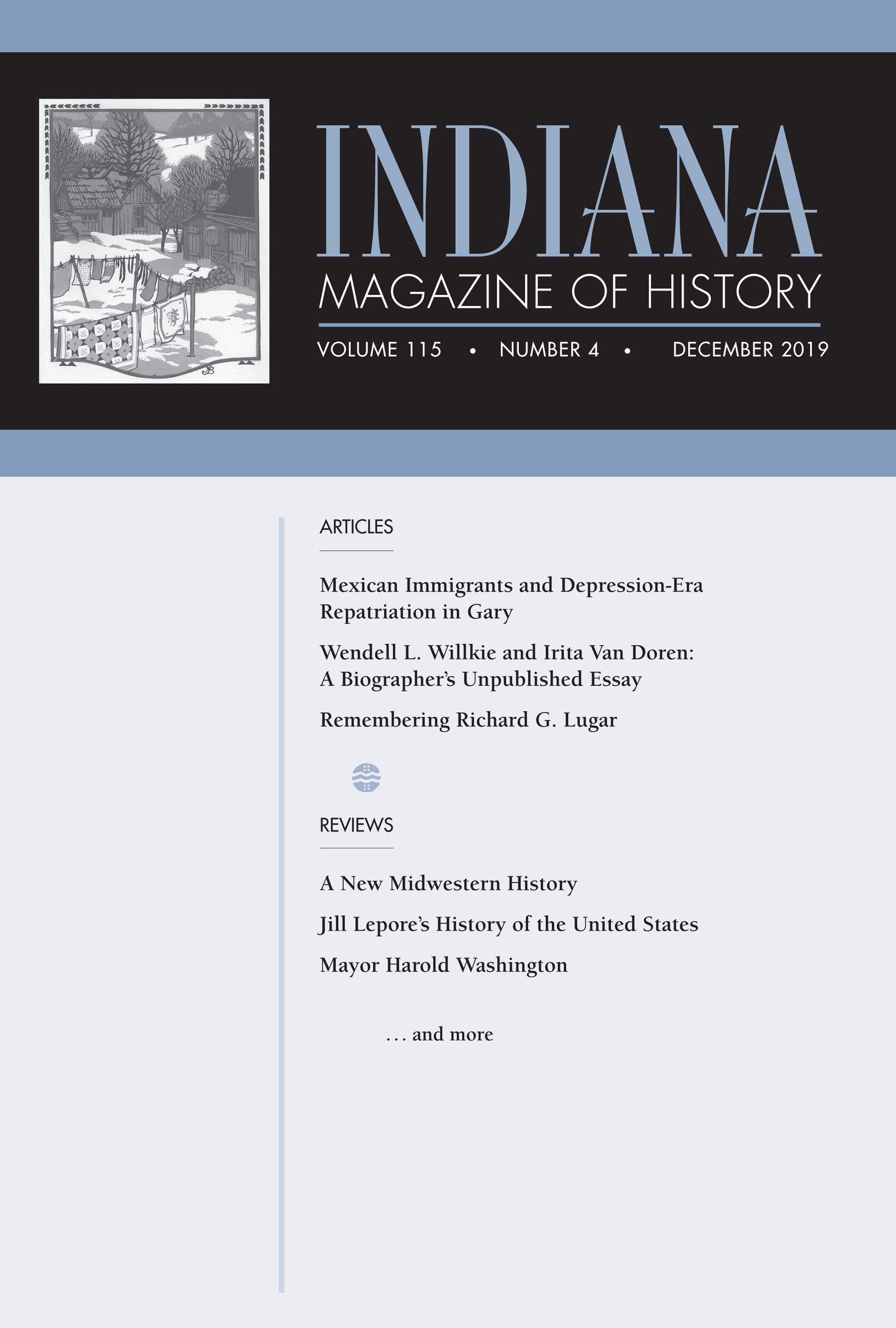Mexican Immigrants and the International Institute of Northwest Indiana During the Mexican Repatriation Crisis in Gary, Indiana, 1929–1937
Main Article Content
Abstract
The Great Depression severely affected the U. S. Steel company town of Gary, Indiana. By 1929, Mexicans had surpassed existing European immigrant populations as the city’s largest ethnic group of immigrant steelworkers. In 1931, Gary’s civic and business leaders began targeting unemployed Mexicans to induce their migration to Mexico. This coercive effort became known as repatriation. Many Mexicans engaged with the International Institute of Northwest Indiana, an immigrant social agency established in 1919, opening case files as social work clients. Mexicans viewed the Institute as a crucial resource for accommodating, contesting, and ultimately resisting efforts to remove them from Gary. They developed a flexible strategy of keeping their options open for residence in either country, while also fighting for employment opportunities in Gary. When area steel plants began requiring U. S. citizenship for employment, Gary’s remaining Mexicans worked with the International Institute to naturalize as U. S. citizens.
